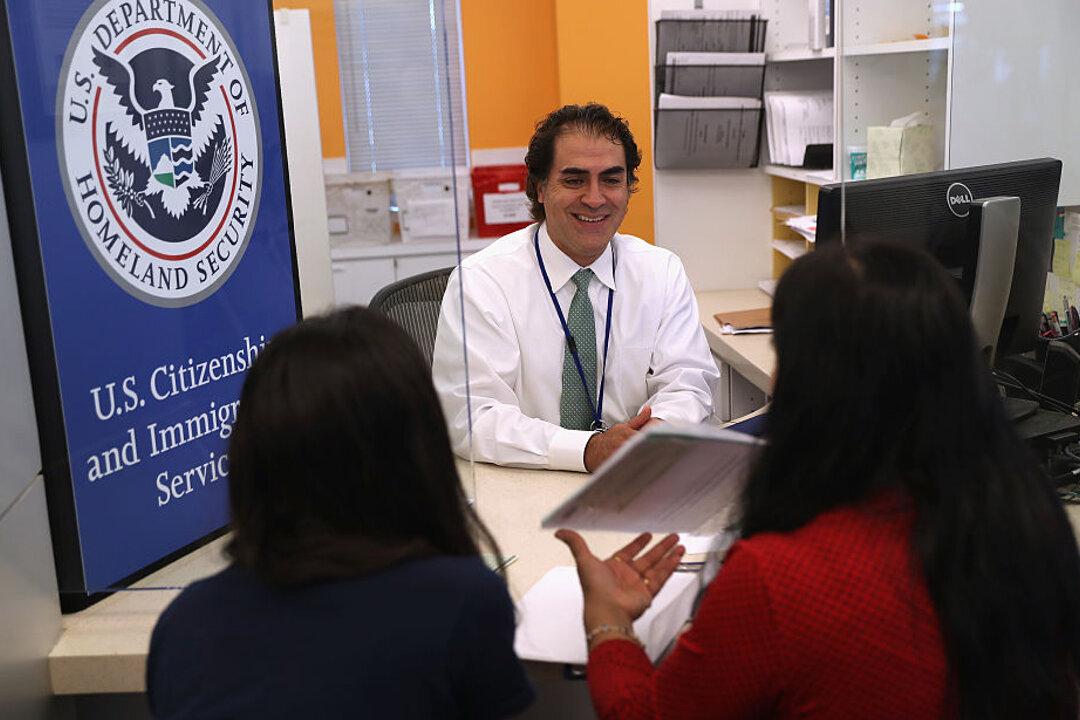The U.S. Citizenship and Immigration Services has begun to retroactively apply its “public charge” rule to green card applicants, after a circuit court lifted a nationwide injunction which has been in place since late July.
The rule will be applied to all pending and future permanent citizenship applications and petitions filed beginning on Feb. 24, 2020, according to a notice posted on the USCIS website.





